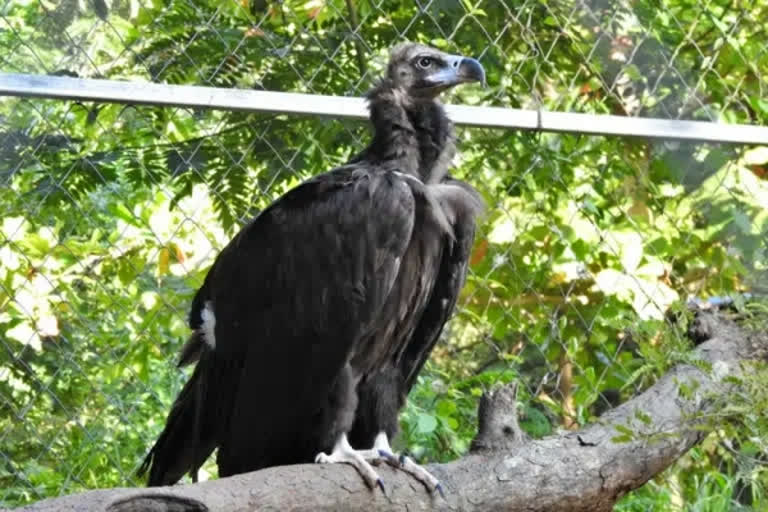New Delhi: The Centre has told the Delhi High Court that effective steps are being taken to strengthen the conservation of vultures and financial assistance is also being provided to the states and Union territories for the conservation of wildlife and its habitats. The Ministry of Environment, Forest and Climate Change said the Action Plan for Vulture Conservation in India (2020-2025) has been released by it for the conservation of endangered species.
The ministry made the submissions in an affidavit filed in response to a petition that highlighted a decline in the vulture population, allegedly due to the use of certain veterinary drugs. It said the action plan recommends that clinical trials of the drugs are conducted on scavenging birds, especially vultures, as traces of certain drugs remain in carcasses, which are fed upon by these birds. "The new molecule should be introduced in the veterinary market only if it is safe for vultures and other scavenging birds.
"The action plan recognises that the NSAIDs acelofenac and ketoprofen are toxic," it said. The ministry said the Indian Veterinary Research Institute in Izarnagar, through safety testing on vultures, has concluded that meloxicam and tolfenamic acid are safe for vultures. "The ministry is taking effective measures in addition to the steps already taken to strengthen the conservation of vultures. The ministry also provides financial assistance to states and Union territories for the conservation of wildlife and its habitats, including vultures, under the centrally-sponsored scheme -- Development of Wildlife Habitats," it said.
The ministry also elaborated on the main objectives of the action plan, including enhancement of the conservation-breeding programme and regular monitoring of the vulture population across the country. It also includes prevention of poisoning of cattle carcasses, the principal food of vultures, and determining and preventing other causes of mortality. The Centre had earlier told the high court that the veterinary division of the Central Drugs Standard Control Organisation (CDSCO) was looking at the alleged toxic impact of certain drugs on the vulture population.
The Centre's counsel, Anurag Ahluwalia, had told a bench of Chief Justice Satish Chandra Sharma and Justice Subramonium Prasad that a comprehensive policy should be formulated on the issue. In May 2022, the high court had asked the Centre to examine the public interest litigation (PIL) matter filed by lawyer Gaurav Bansal, raising concerns with respect to a decline in the vulture population allegedly due to the use of certain veterinary drugs and asked it take measures to save the birds that are an important link in the food chain.
The petitioner has sought the protection and conservation of vultures and claimed that there are certain veterinary drugs in the market that are harmful and toxic to these birds, and yet no serious effort has been made by authorities to ban them. "The major cause and perhaps the only cause of the population decline of vultures in India is the veterinary use of the 'Non Steroidal Anti Inflammatory Drugs' (NSAIDs) in livestock.... Vultures are exposed to a toxic level of NSAIDs when they feed on carcasses of livestock, which died within a few days of treatment, and which contain residues of the said NSAIDs," the petition says.
The petitioner has stated that vultures are a threatened species under the Biological Diversity Act and there is a need to not only ban the toxic drugs but also to create an effective mechanism for the safety testing of new molecules before they are introduced for veterinary and human use. "As per Bombay Natural History Society.... Population of Oriental White Backed Vultures and Long Billed Vultures had declined by more than 92 per cent between 1991-93 and 2000. It is respectfully submitted that as per one more study, by the year 2007, the population of vultures had declined by an astonishing 99.9 per cent for Oriental White Backed Vultures and Long Billed Vultures," the petition says. The petition has also emphasised that losing vultures could be catastrophic to any ecosystem and the birds are significant to the Hindu as well as the Zoroastrian religion. (PTI)



